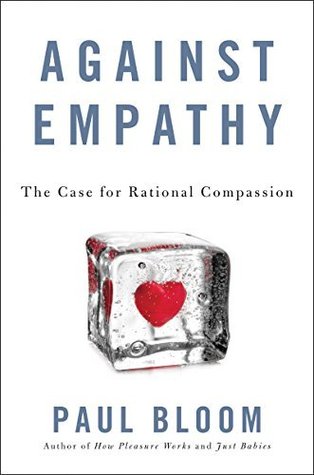More on this book
Community
Kindle Notes & Highlights
by
Paul Bloom
Read between
February 4 - February 23, 2020
The idea I’ll explore is that the act of feeling what you think others are feeling—whatever one chooses to call this—is different from being compassionate, from being kind, and most of all, from being good. From a moral standpoint, we’re better off without it.
Further, spotlights only illuminate what they are pointed at, so empathy reflects our biases.
Even if one knows the best thing to do, one must be motivated to do it.
Association of Medical Colleges, and there is a special focus on empathy training in medical schools. For the most part, I’m all for this. As we’ve seen, people often use the term empathy to include all sorts of good things, and most of what goes on in the name of empathy training in medical school is hard to object to, such as encouraging doctors to listen to patients, to take time with them, and to show respect. It’s only when we think about empathy in a more literal sense that we run into problems. Christine Montross, a surgeon, weighs in on the risks of empathy: “If, while listening to the
...more
Even days after birth, babies get upset by hearing other babies cry—more upset than if they hear a recording of their own crying. And there is abundant evidence that one- and two-year-olds are bothered by seeing others in pain.
In one study, Baumeister and his colleagues asked people to recall either an instance where they angered someone or one where they were angered by someone else. When people remembered incidents in which they were the perpetrator, they often described the harmful act as minor and done for good reasons. When they remembered incidents in which they were the victims, they were more likely to describe the action as significant, with long-lasting effects, and motivated by some combination of irrationality and sadism. Our own acts that upset others are innocent or forced; the acts that others do to
...more


